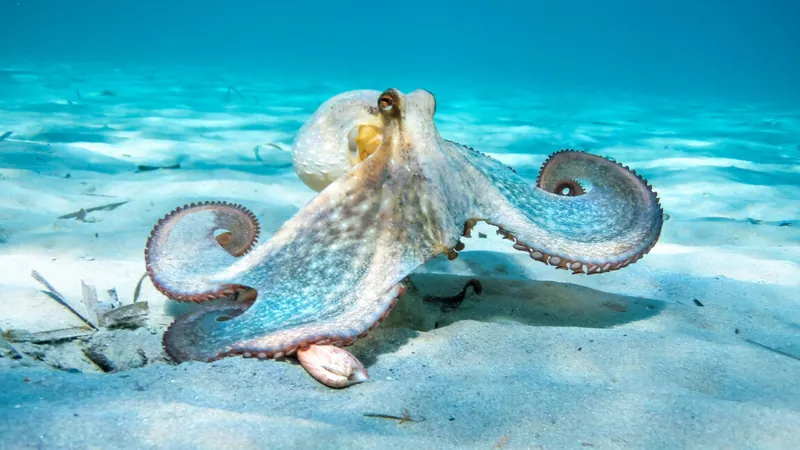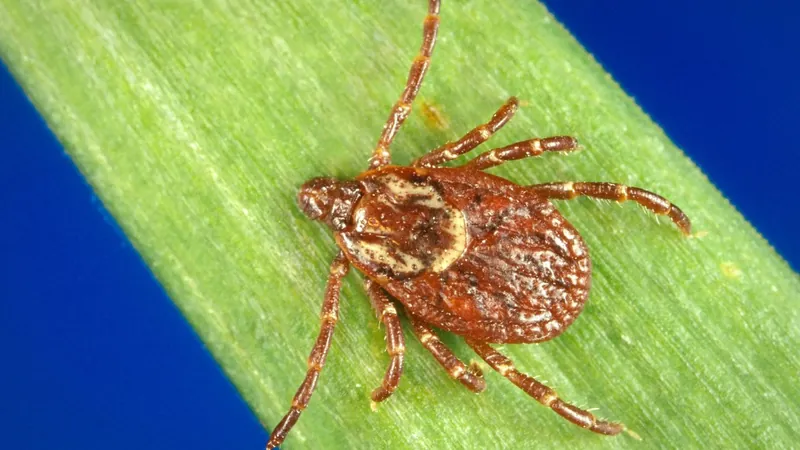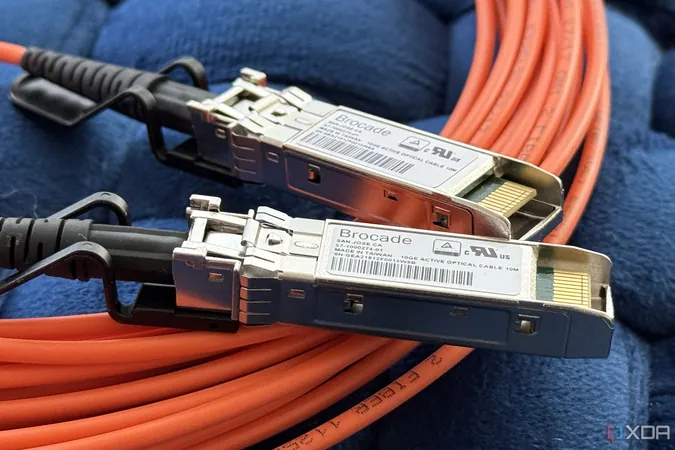
Meet the Nine-Armed Octopus: Unraveling the Mysteries of Cephalopod Intelligence
2025-06-07
Author: Emily
Octopuses are captivating creatures, intriguing both the public and scientists with their incredible capabilities, from rapid camouflage to impressive intelligence. These remarkable beings can recognize faces, solve puzzles, and even learn behaviors from one another, making them a highlight of marine biology research.
Much of their extraordinary abilities stem from their fascinating nervous system, which has caught the keen interest of neuroscientists across the world. With approximately 500 million neurons—compare that to the number found in dogs—octopuses boast the most complex nervous system of any invertebrate. What sets them apart is the decentralization of this system, with a striking 66 percent, or 350 million neurons, residing in their eight arms.
"Each arm can independently process sensory input, initiate movement, and engage in complex actions without direct communication with the central brain," explains Galit Pelled, a professor at Michigan State University specializing in octopus neuroscience. It's as if each arm operates with its own 'mini-brain'!
A Fascinating Case of Abnormal Regeneration
One such intriguing case was recorded by researchers at Spain's ECOBAR lab between 2021 and 2022. They observed a common octopus, Octopus vulgaris, with an astonishing twist—nine arms! This unusual formation was attributed to a regenerative abnormality following an encounter with a predator. Such outliers are invaluable for research, offering insights into how octopuses' intricate networks of nerves adapt and heal.
Brains Galore: A Decentralized Marvel
The octopus's semi-autonomous limbs allow for impressive coordination. Pelled's team found that neural signals from an octopus's arm could predict movement within just 100 milliseconds, bypassing the central brain. This level of autonomy is unheard of in vertebrates.
Even though the limbs move independently, their movements merge into an opulent ballet, showcasing the octopus's adaptability in navigating its environment. One arm can snag a snack while another explores a nearby rock—all without waiting for commands from the brain.
The Complexity of Control
Each arm has its own nerve centers within the suckers that octopuses use for sensation and taste. Researchers like Cassady Olson describe these suckers as having a ganglion, a nerve center, in each stalk, often exceeding a thousand ganglia in some species. However, studying this extensive peripheral nervous system presents its own challenges.
Z. Yan Wang, a biologist and psychologist, notes that the enormous size of an octopus's brain makes it a double-edged sword—exciting to study but complicated, requiring specialized neuroscience tools.
Evolutionary Echoes: Parallels with Human Nervous Systems
Despite the octopus’s unique nervous system, there are striking similarities to that of humans. Both share structures like central brain masses and axial nerve cords, echoing our spinal cords. This line of inquiry reveals how similar features may have evolved independently through a process scientists call convergent evolution—making for a fascinating intersection of biology and evolutionary history.
The Story of 'Salvador': A Lesson in Adaptability
The nine-armed octopus, humorously named Salvador due to the resemblance of its bifurcated arm to Salvador Dali's mustache, underwent extensive study. Researchers noted that Salvador adopted a cautious approach, using its unusual limb sparingly during risky activities, hinting at a lasting memory of its previous injury.
Once healed, Salvador skillfully incorporated its ninth arm into its repertoire of movements—another testament to the octopus's extraordinary adaptability. “Most animals would struggle with an unusual body part but not the octopus. It shows us how swiftly and efficiently their nervous system adapts,” Pelled asserts.
With their ability to evolve and thrive even under extraordinary circumstances, octopuses continue to astonish scientists and enthusiasts alike, making them one of the ocean's most miraculous inhabitants.









 Brasil (PT)
Brasil (PT)
 Canada (EN)
Canada (EN)
 Chile (ES)
Chile (ES)
 Česko (CS)
Česko (CS)
 대한민국 (KO)
대한민국 (KO)
 España (ES)
España (ES)
 France (FR)
France (FR)
 Hong Kong (EN)
Hong Kong (EN)
 Italia (IT)
Italia (IT)
 日本 (JA)
日本 (JA)
 Magyarország (HU)
Magyarország (HU)
 Norge (NO)
Norge (NO)
 Polska (PL)
Polska (PL)
 Schweiz (DE)
Schweiz (DE)
 Singapore (EN)
Singapore (EN)
 Sverige (SV)
Sverige (SV)
 Suomi (FI)
Suomi (FI)
 Türkiye (TR)
Türkiye (TR)
 الإمارات العربية المتحدة (AR)
الإمارات العربية المتحدة (AR)